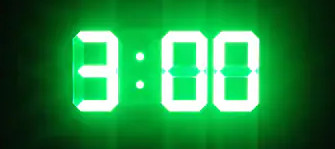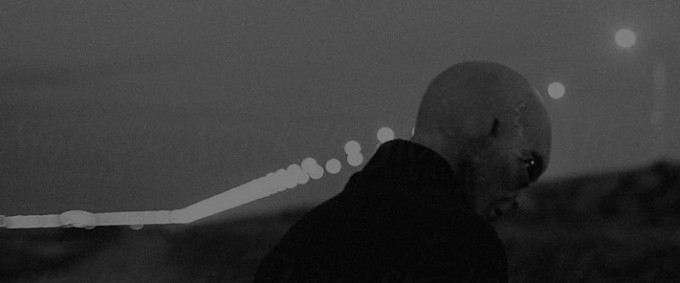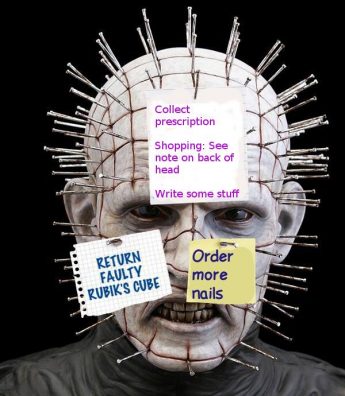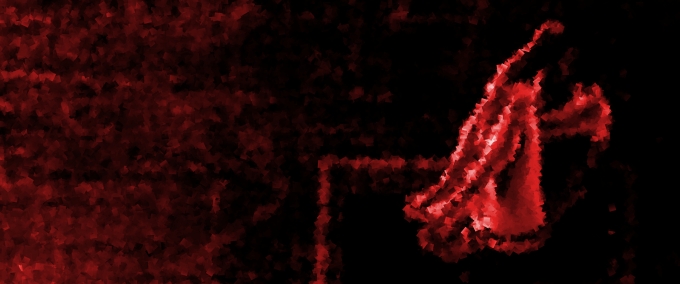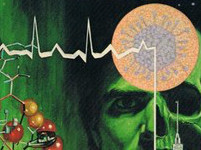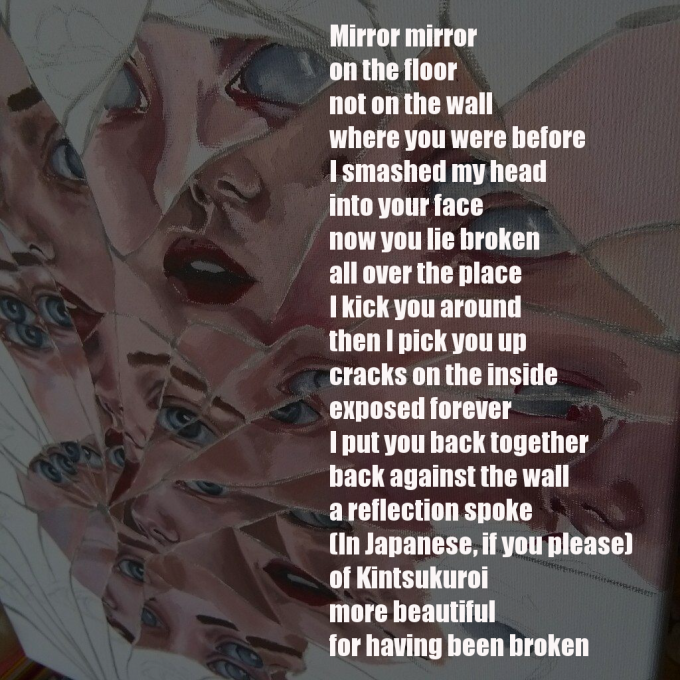FICTION

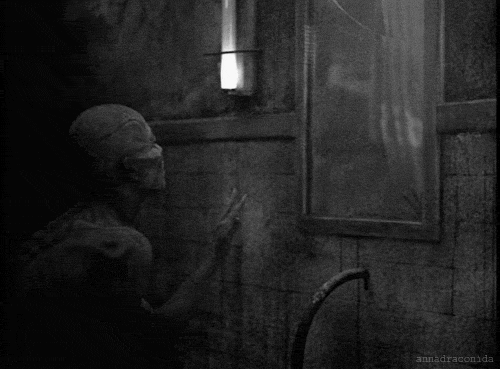
THE PERPETUITY OF MEMORY
“When you see what Dom Pablo has done, at first you may recoil. But Dom’s art is personal and subjective. Each work is unique and creates another life for the owner. A gift from an admirer.”
The invitation to be part of a rare commission by Dom Pablo Solanas was a work of art in itself: exquisitely crafted by the artist and a future priceless piece. This alone was a luxurious gift, even to someone of Christiana Kunsak’s means, yet it was merely an invitation to a private audience with Solanas himself. A box, carved from a single piece each of ebony and rare boxwood, interlocked to form a puzzle.
The piece is entitled La armonia. The accompanying notes state that the name only exists for as long as the puzzle is in its unsolved form: once the puzzle is solved and the two pieces separated, a mechanism inside the piece ensures that they cannot be re-joined. Once the puzzle is complete, La armonia ceases to exist and the work becomes La ansiedad.
La armonia was a rare and beautiful thing. It also held a secret: an invitation to meet with Dom Pablo Solanas. The nature of that meeting was unknown and therein lay a form of gamble; a wager with oneself: La armonia was unique and intricately crafted; its aesthetics were unquestionable in that initial state. Further value must be added for the simple fact that the piece contains a secret. If that secret is revealed, it may reduce the value of the work. The invitation will be spent.
La ansiedad may not be as pleasing to the eye as La armonia and it is the permanent replacement, with La armonia destroyed forever. Conversely, the construction of the work is so fine and detailed as to invite curiosity, more of what it might become than what it is: should that beauty be left as potential, or revealed? Is it something which may be left to a subsequent benefactor? What might they find inside La armonia?
Christiana could not deny herself a pleasure which someone else might yet have, and which she may never see.
As soon as the first link clicked audibly out of place somewhere inside the box, La armonia was no longer. There were no instructions on how to create La ansiedad: it was a work to be created by a new artist from the original. Only when the puzzle was complete would it reveal its secret and until then, it was nameless and fluid.
Held in both hands, the wooden box – around the size of a large cigar box – felt as heavy as it should, carved from solid wood and not hollowed out. It was slightly heavier at one end than the other. The seamless interlocking of the ebony and boxwood formed variously alternate, interlocking and enclosing patterns of dark and light. Aside from the initial click, no amount of tilting, pressing, pulling, twisting and pushing of the device produced any change. Christiana alone had been privy to that first movement, so to anyone other than her, La armonia still existed. But she wanted to create and to see La ansiedad.
The box remained unaffected by manipulation, until Christiana’s housemaid picked it up to clean around it. Snatching the box from the maid’s hand, Christiana heard another click from the device and almost immediately noticed a change: the box remained a cuboid but the dimensions and patterns had altered. Closer examination of the new patterns revealed some to have assumed shapes which suggested movement: swirls, series of dots and even directional arrows. The introduction of a third party had revealed a form of instruction.
Over a period of around four weeks, the wooden box became a collaborative project, with guests to Christiana’s apartment invited to examine the puzzle and attempt to solve it. During that time, the box took on many geometric forms: pyramid, cone, octahedron and latterly, a perfect cube, with opposite ebony and boxwood faces: it was more perfect in form that it had ever been but it still harboured something inside.
The geometrically perfect cube would let up no further information and remained static for a number of days, until the housemaid picked it up once more while she was cleaning. The top half separated from the bottom, the base now a half-cube on the table. The surfaces of the half cubes where they’d separated were a chequerboard design: a game of miniature chess could be played on each ebony and boxwood surface, the size of drinks coasters.
Christiana placed the two halves back together and a perfect cube once again sat upon the table, for a while. After around five seconds, the cube began to make a whirring sound, as though a clockwork mechanism had been invisibly wound inside. Slowly and with a smoothness suggesting the most intricate mechanical construction, the individual tiles on top of the cube folded back from the centre to the edges, eventually forming a five-sided cube with a checked interior.
It was seemingly the lack of any further outside intervention which allowed the wooden device to complete a long transformation by self-re-assembly and after a while, the device resembled a chequered wooden hand. A slot opened in the palm and a card was offered between the forefinger and thumb: a card roughly the size of a visiting card and folded with such accuracy as to disguise the fact that it was anything other. Yet unfurled, it was an octavo sheet: eight leaves. The reverse of the flat sheet was blank but the eight pages to view on the face were images of art.
Oil and watercolour paintings; portraits, landscapes, sill life and abstract; cubist, surrealist and classical. Wooden, metal and glass sculptures; pieces made using prefabricated materials, notably shop window mannequins, plastic dolls, action men and tin soldiers. Body art as well: tattoos drawn in such a way as to give them a third dimension: an arm with skin pulled back to reveal muscle and bone beneath by way of a zip; a human chest splayed open to reveal a metallic cyborg beneath: living art made from human flesh, these two suggesting something beneath the skin visible only with the benefit of intimacy with the bearer. Another tattoo made the wearer’s right leg appear as though the limb were an intricate sculpture made from wood: one organic material transformed into another, which can be transformed in a way that the material it’s made from cannot, to create the illusion of just such a thing.
All of these things had been made by the hands of Dom Pablo Solanas. All were arresting at first sight and invited closer inspection. Even as facsimiles and at such small sizes, the works of Solanas were breathtaking. At the bottom of the sheet was a phone number: apparently a direct line to Dom Pablo himself.
La ansiedad quietly whirred into motion again, the mechanical fingers retracting into the wooden flesh of the hand until the sculpture was briefly a chequered ovoid, before flipping open like a clam shell. It continued to change form, seemingly with perpetuity.
Dom Pablo arrived promptly and attired in a fashion exhibited in many public portraits of him: conflicting primary colours which somehow worked, on a man who also wore a fedora hat at all times, and who sported a perfectly manicured handlebar moustache.
“Ms. Kunsak. A pleasure to meet you.”
“Please sir: Christiana. Likewise, Mr Solanas.” Christiana offered her hand, which Solanas held firmly.
“As you wish. And please, call me Dom Pablo.” His voice was deep and relaxed. “Christiana: what is it that you’d like to do today?”
“I already have a great gift before me. This is a chance for me to turn your natural gift into something I can share. I have everything I could need around me, but this is an opportunity to own something which is so treasured, I may not wish to leave this apartment again.”
“Indeed. That is one of the rules I apply to my arts. Just as I turn my raw materials into others – like flesh into wood – so I wish to allow others to use me as a creative tool, so that what I create is their own. My subjects and prefabricated materials are artworks in themselves but together, we make unique pieces. By allowing a subject to commission me, I am subverting the art and holding a mirror to the process.
“You will of course have an idea of who the giver of this gift is. Association with such a person is to be in the membership of a society which respects certain things, like privacy. Therefore, I never discuss the details of a commission with the subject. It is highly unlikely that anyone should wish to attract attention to anyone outside of a certain group, that they have been a part of my work. All of my pieces are unique and personal.”
“It is those very people, those within my inner circles, that I have in mind as I enter into this: it was within my closest circles that I came to receive this, and only those of a certain standing will have access. Dom Pablo: I should like to carry your work with me in those circles; I would like you to use me as a canvas and make me a living work of art.”
“A truly beautiful idea. Although the canvas is living, I must render it inanimate so that I may work. As such, I shall administer a general anaesthetic, so that you feel no discomfort. I don’t like to talk when I work. When you awake, we will have new art and the Dom Pablo art changes lives. You will enter an even more exclusive, innermost circle of my very own. Excited? Sleep now…
***
“…When you see what Dom Pablo has done, at first you may recoil. But Dom’s art is personal and subjective; each work is unique and creates another life for the owner. My art remains with you, just as the motion of La ansiedad is perpetual. This latest work is entitledThe perpetuity of memory.”
Christiana stared into the mirror, and the illusion of wood carved from human flesh was real. It would take a level of intimacy permitted to very few, to see the original material beneath the artwork, made by Dom Pablo. The mannequin beneath the wooden skin.
© Steve Laker, 2015
Both The Perpetuity of Memory and The Unfinished Literary Agency, are available now in paperback.
